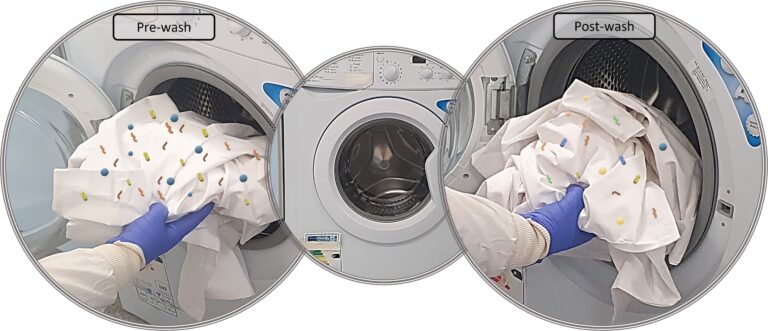Global study links coffee and tea consumption to cancer risk – AOL.com
2025-04-17T22:30:00Z
In the fight against cancer, researchers continue to look for everyday habits that might make a difference. A recent global study has shed new light on somet…
New study links coffee and tea with lower risk of certain head and neck cancers, including throat and mouth cancers. (CREDIT: Shutterstock)
In the fight against cancer, researchers continue to look for everyday habits that might make a difference. A recent global study has shed new light on something many people do daily—drink coffee or tea. This study explored whether these popular beverages could lower the risk of head and neck cancer, a group of diseases that includes cancers of the mouth, throat, and voice box.
The results may give hope to millions of coffee and tea drinkers worldwide. The findings suggest that drinking coffee, both caffeinated and decaffeinated, and even tea in certain amounts, may be linked to lower chances of developing certain types of head and neck cancer.
A Global Look at a Growing Cancer Concern
Head and neck cancers are now the seventh most common type of cancer around the world. These cancers are becoming more frequent, especially in low- and middle-income countries. As more people are affected, scientists are working harder to understand how lifestyle choices might influence cancer risks.
New research suggests that daily coffee consumption may help lower the risk of head and neck cancers. (CREDIT: Science Photo Library)
Over the years, studies on coffee and tea’s impact on these cancers have had mixed results. Some showed promise, while others found no clear link. To get a better picture, researchers from around the world came together to reanalyze a large amount of data. The team, led by the Huntsman Cancer Institute at the University of Utah, reviewed 14 different studies gathered by the International Head and Neck Cancer Epidemiology (INHANCE) consortium.
This group looked at information from nearly 25,000 people. Of these, 9,548 had head and neck cancer, and 15,783 did not. Participants answered detailed questions about how much coffee and tea they drank over time. This included whether the coffee was regular or decaffeinated and how often they consumed it.
What the Study Revealed About Coffee
The results showed a clear trend: people who drank more than four cups of caffeinated coffee per day had lower odds of getting head and neck cancer. Specifically, these individuals had: 17% lower odds of developing any type of head and neck cancer, 30% lower odds of developing cancer of the mouth, and 22% lower odds of developing throat cancer.
Even more striking, those who drank three to four cups daily had a 41% lower risk of developing hypopharyngeal cancer. This is a rare but serious type of cancer that starts at the bottom part of the throat, near the voice box.
Even decaffeinated coffee seemed to offer benefits. People who drank decaf had 25% lower odds of getting oral cavity cancer. This finding is important because it suggests that something other than caffeine—possibly antioxidants or other plant-based compounds in coffee—might be helping protect cells.
Tea’s Role in Cancer Risk
Tea also showed some promise, especially when it came to hypopharyngeal cancer. People who drank tea had 29% lower odds of getting this type of cancer. Those who drank one cup or less per day had:
9% lower risk of head and neck cancer overall
27% lower risk of hypopharyngeal cancer
Study-specific odds ratios for >4 cups of caffeinated coffee daily versus non–coffee drinkers for oral cavity and oropharyngeal cancers. (CREDIT: American Cancer Society)
However, the relationship between tea and cancer risk wasn’t all positive. Drinking more than one cup of tea daily was linked with a 38% higher chance of developing laryngeal cancer, which affects the voice box.
This surprising result shows that the effects of tea might vary depending on how much is consumed and which part of the head or neck is involved.
What These Findings Mean
“While there has been prior research on coffee and tea consumption and reduced risk of cancer, this study highlighted their varying effects with different sub-sites of head and neck cancer, including the observation that even decaffeinated coffee had some positive impact,” said Yuan-Chin Amy Lee, the study’s senior author.
Lee, an adjunct associate professor in public health, pointed out that coffee and tea habits can be complex. People drink them in many different ways—some with milk or sugar, some plain, and in different amounts.
These habits might influence how coffee or tea affects the body. “These findings support the need for more data and further studies around the impact that coffee and tea can have on reducing cancer risk,” Lee added.
This study doesn’t prove that coffee or tea prevents cancer. But it does suggest that these beverages could play a role in lowering the risk for some people. The research also helps show how different types of head and neck cancer may respond differently to substances found in these drinks.
Takeaways for Everyday Life
If you’re someone who drinks coffee or tea, this study offers some good news. While more research is needed, moderate coffee drinking could be linked with lower chances of developing certain cancers of the head and neck. Even decaf coffee might help.
Characteristics of head and neck cancer cases and controls of select INHANCE consortium studies. (CREDIT: American Cancer Society)
When it comes to tea, a cup a day might help protect against some cancers, but more than that could raise the risk for others. This suggests a careful balance is needed. The kind of tea, how it’s made, and what’s added to it could all play a role in how it affects your health.
As always, no single food or drink can fully protect you from cancer. But understanding how common habits influence health is a key part of cancer prevention. These new findings may encourage more people to look at how everyday choices—like what you drink—could add up over time to support better health.
Note: The article above provided above by The Brighter Side of News.
Auto-posted from news source






